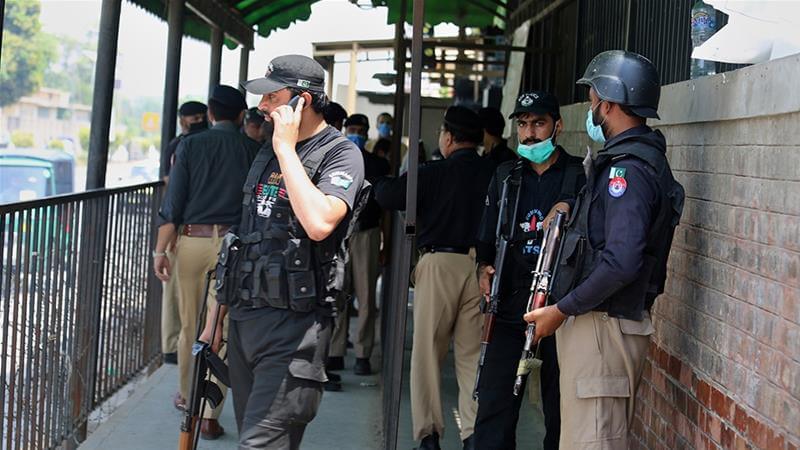On Wednesday, Tahir Ahmed Naseem, a 47-year-old citizen of the United States, died after being shot at during his trial before a court in Peshawar, Pakistan. A spokesperson for the Peshawar police said that the attacker, before shooting at Naseem, called him an “enemy of religion”. Pakistani police forces immediately arrested him.
Naseem was a member of the Ahmadiya community, a religious minority in Pakistan, and a resident of the US. He began conversing with Awais Malik, a Pakistani teenager, who was a student in an Islamic school, while still in the US. In 2018, he met with Malik in Pakistan to allegedly discuss religious opinions. Malik then filed a complaint against him claiming that Naseem called himself a “messiah sent by God”. He was charged under Sections 295A, 295B and 295C of the Pakistani Penal Code, that deal with blasphemy.
Responding to the incident, the US State Department, in a statement released on Thursday, said that the officials at the department were “shocked, saddened, and outraged” by the incident. Further, the report claimed that Naseem was “lured to Pakistan from his home in Illinois by individuals who then used Pakistan’s blasphemy laws to entrap him”. Allegedly, consular assistance was being provided to Naseem since his arrest.
Another statement by the State Department’s Bureau of South and Central Asian Affairs, said, “We extend our condolences to the family of Tahir Naseem, the American citizen who was killed today inside a courtroom in Pakistan … We urge Pakistan to take immediate action and pursue reforms that will prevent such a shameful tragedy from happening again.”
The US State Department further called on Pakistan to amend its problematic blasphemy laws. The statement read, “We urge Pakistan to immediately reform its often abused blasphemy laws and its court system, which allow such abuses to occur, and to ensure that the suspect is prosecuted to the full extent of the law.” The issue previously attracted criticism from several international commentators in 2011, when a governor of a province in Pakistan was killed by his bodyguard because he defended Asia Bibi, a Christian woman charged for blasphemy after getting into an argument with a group of women. She was initially awarded the death penalty and later acquitted by the Pakistani Supreme Court over the insufficiency of evidence.
Pakistan’s blasphemy law criminalises acts that disturb religious assemblies or distort a religious place or object. It also prohibits any statement that insults religious beliefs. A violation of blasphemy laws allows for a prison sentence of one to ten years in jail. Further, according to the law, any statement or action against Prophet Muhammad attracts a death sentence or a life sentence.
International rights groups have criticised the laws for being disproportionately used against minorities or critics of religious institutions in Pakistan. The Human Rights Watch reported that, in 2019, 17 individuals, most of whom are members of minority communities in Pakistan, were on a death sentence for blasphemy charges. Further, according to a report by the National Commission for Justice and Peace (NCJP), 776 Muslims, 505 Ahmadis, 229 Christians and 30 Hindus have been charged under the laws between 1987 and 2018. While there have been no executions by the Pakistan judicial system since 1990, 77 people charged for blasphemy have been victims of extra-judicial killings.
American Citizen Charged For Blasphemy Shot Dead in Pakistani Courthouse
The US has urged Pakistani authorities to amend their often abused blasphemy laws.
July 31, 2020

SOURCE: ASSOCIATED PRESS
